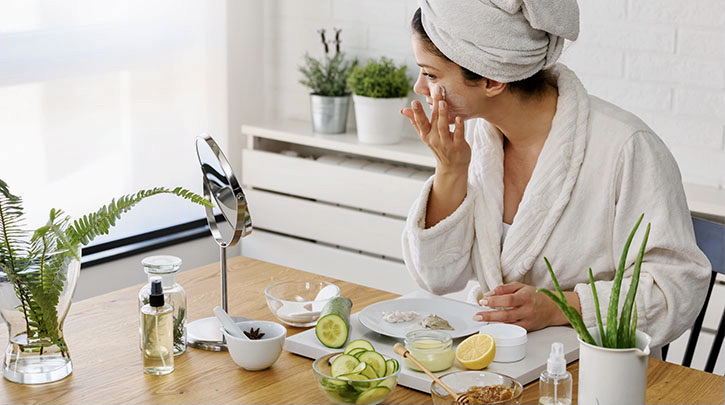Is Fragrance Bad in Skincare? What Beauticians Need to Know
For beauticians, understanding the complexities of skincare products is essential. One of the hot topics in the beauty industry today is whether fragrance is bad in skincare. While fragrances can make skincare products more appealing with their pleasant scents, they can also have hidden drawbacks. It's crucial for professionals to be well-informed about this topic to provide the best advice to their clients.
The debate around the use of fragrance in skincare has intensified, with many experts suggesting that it might not be as beneficial as it seems. While fragrances are added to enhance the sensory experience, they can sometimes lead to adverse effects, especially for individuals with sensitive skin. But is fragrance really that bad? Let's delve deeper into this subject.

The Allure of Fragrance in Skincare
Fragrance adds a touch of luxury to skincare products, making them more enjoyable to use. A pleasant scent can evoke emotions, create a sense of indulgence, and enhance the overall experience of applying skincare products. For many consumers, fragrance is a key factor in their purchasing decisions. However, as a beautician, it's important to weigh the pros and cons of fragrance in skincare products.
While a delightful aroma can enhance the experience, it can also mask the presence of harsh chemicals. This can be misleading for consumers who are unaware of the potential irritants lurking beneath the fragrant exterior. For beauticians, educating clients about the potential risks associated with fragrance in skincare is crucial.
Potential Drawbacks of Fragrance in Skincare
The primary concern with fragrance in skincare is its potential to cause irritation and allergic reactions. Many fragrances are derived from synthetic chemicals, which can be harsh on the skin. For individuals with sensitive or reactive skin, these chemicals can trigger redness, irritation, and even breakouts.
Moreover, fragrances can interfere with other active ingredients in skincare products. This can diminish the effectiveness of these ingredients, making the overall product less beneficial. For instance, certain fragrances can alter the pH balance of the skin, affecting its natural barrier and leading to increased sensitivity.
Fragrance-Free Alternatives
For clients with sensitive skin or those looking to avoid potential irritants, fragrance-free skincare products are an excellent alternative. These products are formulated without added fragrances, reducing the risk of irritation and allergic reactions.
Beauticians can recommend fragrance-free options for clients seeking a gentler skincare routine. By doing so, they can help clients achieve healthier skin without the added risk of irritation. For more tips on creating a tailored skincare routine, visit this simple skincare routine guide.
Guiding Clients Towards Informed Choices
As a beautician, it's important to guide clients towards making informed choices about their skincare products. This includes educating them about the potential risks associated with fragrance in skincare. By doing so, beauticians can help clients make choices that align with their skin's unique needs.
Encouraging clients to read product labels and understand the ingredients can empower them to make better choices. Beauticians can also provide personalized recommendations based on their clients' skin types and concerns. For more insights on addressing specific skin concerns, check out our articles on mature skin care and fixing chicken skin.
Natural Fragrance: A Safer Option?
For clients who love the sensory experience of scented skincare products, natural fragrances can be a safer alternative. Derived from essential oils and botanical extracts, natural fragrances are generally gentler on the skin than synthetic counterparts. However, it's important to note that even natural fragrances can sometimes cause irritation, so it's essential to patch-test new products before full application.
Beauticians can educate their clients about the benefits and potential risks of natural fragrances, helping them make informed decisions. For more information on managing skin sensitivity and choosing the right products, read our guide on skincare for rosacea-prone skin.
Key Takeaways for Beauticians
Understanding the impact of fragrance in skincare is crucial for beauticians, as it enables them to provide informed advice to their clients. While fragrance can enhance the sensory experience, it can also pose potential risks to skin health. By staying informed and guiding clients towards safer alternatives, beauticians can play a vital role in promoting healthy and radiant skin.
For more comprehensive advice on skincare routines and product knowledge, consider exploring additional resources such as Vogue's skincare routine. This can help you stay updated with the latest trends and best practices in the beauty industry.

FAQ
1. Can fragrance cause long-term skin damage?
While fragrance itself may not cause long-term damage, repeated exposure to irritating fragrances can lead to chronic skin sensitivity and damage the skin barrier over time.
2. Are all synthetic fragrances bad for the skin?
Not all synthetic fragrances are harmful, but many can be irritants. It's important to patch-test products and choose those formulated for sensitive skin to minimize risks.
3. How can I identify fragrance in skincare products?
Check the ingredient list for terms like 'fragrance,' 'parfum,' or specific chemical names. Opt for products labeled as 'fragrance-free' or 'unscented' for safer options.
This article contains affiliate links. We may earn a commission at no extra cost to you.

